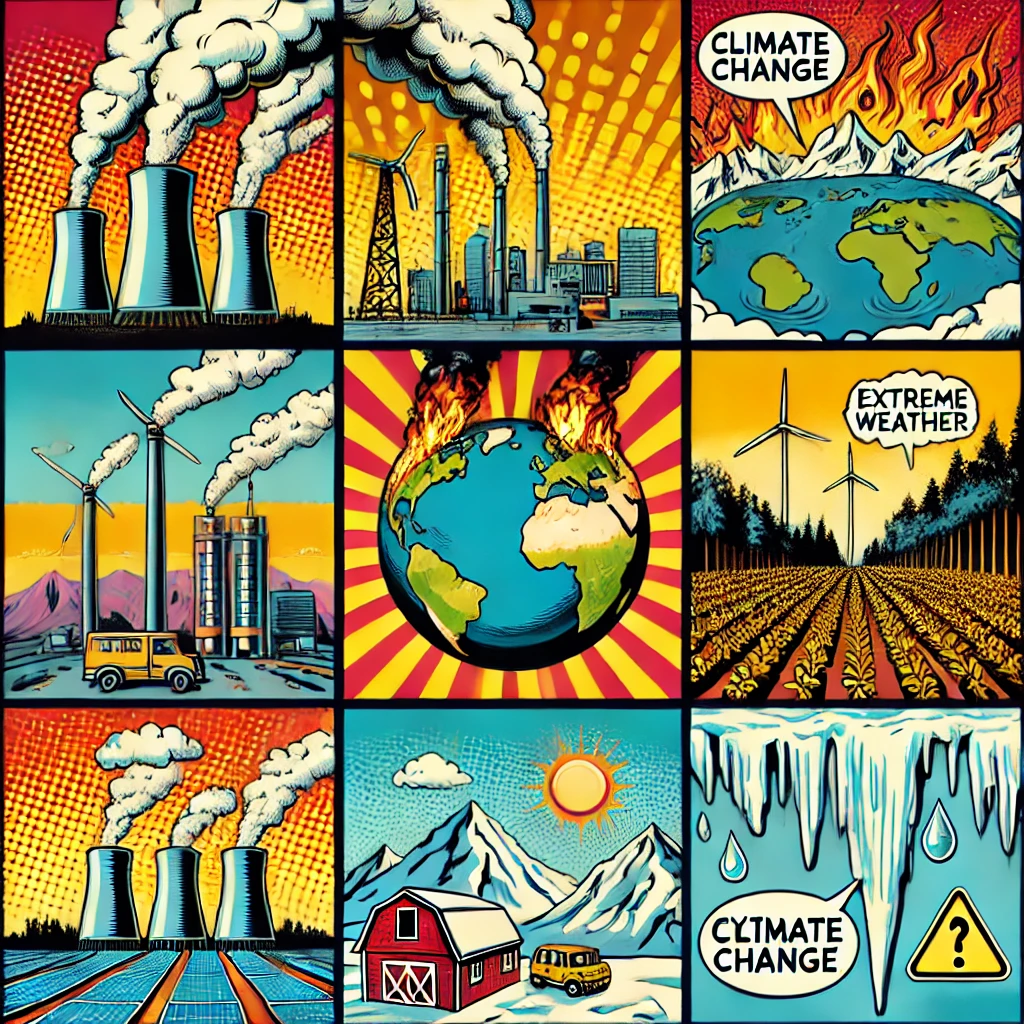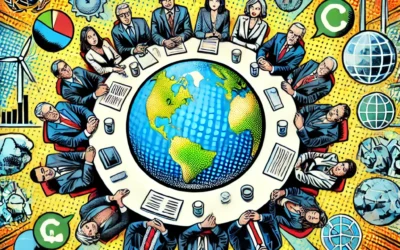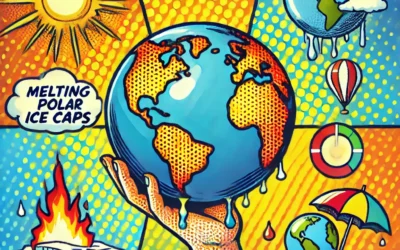The causes of climate change are a complex interplay of natural and human-induced factors that have led to significant shifts in the Earth’s climate system. As the planet continues to warm, understanding these causes is crucial for developing effective strategies to mitigate the impacts of climate change. This article explores the primary causes of climate change, from greenhouse gas emissions to deforestation, and how these factors contribute to the global climate crisis.
Natural Causes of Climate Change
While human activities are the primary drivers of the current climate crisis, natural factors have also played a role in shaping the Earth’s climate over millennia. Some of these natural causes include:
1. Volcanic Activity
Volcanic eruptions can have a significant impact on the climate by releasing large quantities of aerosols and carbon dioxide (CO2) into the atmosphere. These aerosols reflect sunlight away from the Earth, causing temporary cooling periods. However, over geological time scales, volcanic activity has contributed to both warming and cooling of the planet.
2. Solar Radiation
Changes in the sun’s energy output, known as solar radiation, have influenced the Earth’s climate. Variations in solar radiation can lead to periods of warming or cooling. However, scientific evidence shows that recent increases in global temperatures cannot be explained by changes in solar radiation alone.
3. Orbital Changes
The Earth’s orbit around the sun changes over long periods, affecting the distribution of sunlight on the planet’s surface. These orbital changes, known as Milankovitch cycles, have been linked to the ice ages and interglacial periods in Earth’s history. While these natural cycles have influenced past climate variations, they are not responsible for the rapid warming observed today.
Human-Induced Causes of Climate Change
The current trend of global warming is primarily driven by human activities that increase the concentration of greenhouse gases in the atmosphere. The most significant human-induced causes of climate change include:
1. Greenhouse Gas Emissions
The burning of fossil fuels such as coal, oil, and natural gas for energy and transportation is the leading cause of greenhouse gas emissions. These activities release large amounts of carbon dioxide (CO2), methane (CH4), and nitrous oxide (N2O) into the atmosphere. These gases trap heat, leading to the greenhouse effect and global warming.
2. Deforestation
Deforestation, or the large-scale removal of trees, reduces the Earth’s capacity to absorb CO2 from the atmosphere. Forests act as carbon sinks, and when they are destroyed, the stored carbon is released back into the atmosphere, contributing to the greenhouse effect. Additionally, deforestation disrupts local climates and biodiversity.
3. Industrial Processes
Industrial activities, including the production of cement, steel, and chemicals, are significant sources of greenhouse gases. These processes often involve the burning of fossil fuels and the release of other pollutants that contribute to climate change. The industrial sector is a major contributor to CO2 and methane emissions.
4. Agriculture
Agricultural practices, particularly livestock farming and rice cultivation, produce large amounts of methane and nitrous oxide. Livestock such as cattle produce methane during digestion, while the use of fertilizers in crop production releases nitrous oxide. Both of these gases are potent greenhouse gases that contribute to global warming.
The Impact of Climate Change
The causes of climate change have far-reaching impacts on the environment, human health, and economies. Rising global temperatures are leading to more frequent and severe weather events, such as hurricanes, droughts, and heatwaves. Melting polar ice and glaciers are contributing to sea-level rise, threatening coastal communities and ecosystems. Additionally, climate change is disrupting agricultural production, leading to food insecurity in vulnerable regions.
Addressing the Causes of Climate Change
Tackling the causes of climate change requires a comprehensive and coordinated global effort. Reducing greenhouse gas emissions through the adoption of renewable energy sources, reforestation, and sustainable agricultural practices are key strategies. International agreements such as the Paris Agreement play a crucial role in uniting countries to combat climate change and limit global temperature rise.
Understanding the causes of climate change is essential for developing effective solutions to protect our planet for future generations. By addressing both natural and human-induced factors, we can work towards a more sustainable and resilient future.






